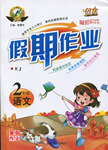题目内容
– Do you mind if I smoke?
– Well, I’d rather you ______.
A. don’t B. didn’t C. won’t D. aren’t
练习册系列答案
 鸿图图书寒假作业假期作业吉林大学出版社系列答案
鸿图图书寒假作业假期作业吉林大学出版社系列答案
相关题目
题目内容
– Do you mind if I smoke?
– Well, I’d rather you ______.
A. don’t B. didn’t C. won’t D. aren’t
 鸿图图书寒假作业假期作业吉林大学出版社系列答案
鸿图图书寒假作业假期作业吉林大学出版社系列答案